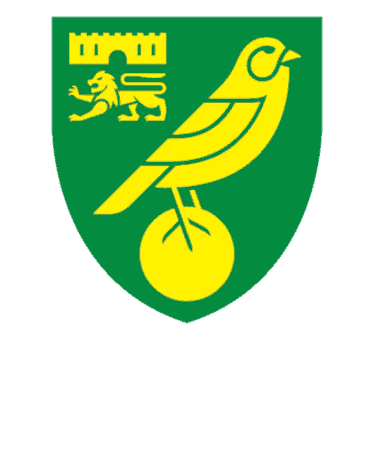How much deposit do you need for a mortgage?
- You'll experience an unrivalled customer service
- We are an independently owned brokerage offering first charge mortgages from the whole of the market.
- You can contact us 24/7, we're always available to help
Whats on this page
What's On This Page?
Home » How much deposit do you need for a mortgage?


How much deposit do you need for a mortgage?
George Stringer and Sam Hill talk through deposits for a mortgage and what to consider.
What is a mortgage deposit? How does a mortgage deposit work?
A mortgage deposit is an upfront payment on a property purchase. The mortgage amount plus the deposit will total the property purchase price. Combining the two makes 100% of the cost – we’ll go into a bit more detail about the best way to go about it.
How much deposit do I need for a mortgage? How much deposit should I save?
The minimum deposit in most circumstances is 5%, although some lenders do require 10%, 15% or even 25% depending on the situation. The larger the deposit that you can put down will often lead to a lower interest rate.
What’s the average First Time Buyer deposit?
It goes up in 5% increments. With First Time Buyers, there’s not really a standard because it’s all down to personal circumstances.
A key point is that your deposit could affect the property value you’re looking to purchase. The higher the value, the more funds you need to get those higher percentage deposits. But as long as you have 5%, you can start exploring your options.
What does a bigger house deposit mean for my Loan to Value?
Loan to Value or LTV is the amount of mortgage you’re borrowing against the deposit you’re putting down. It’s expressed as a percentage of the property price.
The bigger the deposit, the lower your Loan to Value will be. For example, you’re buying a house for £100 and your mortgage is going to be £50. You’d put a £50 deposit down and your Loan to Value would be 50%.
I wish we could buy a property for £100, but that just gives you an idea.
Why do I need to save a house deposit? How can I save for a deposit?
Almost always, a deposit is a requirement from the mortgage lender. The minimum is 5%, but having more than that is helpful. If you’re borrowing less, the amount you’re paying back is less, so it will be cheaper in the long run.
Everyone will have their own way of saving, but the best way to start is knowing what you’re spending and tracking where your money is going. You can then try and cut back in places.
See how much you can put aside towards a deposit each month. Having that information in front of you is key. Take some time, make a budget planner and see how much you can put aside from there.
Can I get a mortgage with a 0% deposit? Can I get a 100% mortgage?
There is currently one scheme available where there’s no deposit required. To qualify, you have to have rented for 12 months and evidence that you’ve paid all your rental payments on time during this period. It’s called a Track Record mortgage. [podcast recorded in December 2023]
There are some additional factors that can limit your options with the 100% mortgage. So speak to an adviser who can assess your personal situation and find out what works for you.
So it is possible to get a mortgage with 0% deposit – which means you’re getting a 100% mortgage. This is limited just to one lender at the moment, and there are a lot of requirements to qualify.
How much can I borrow with a 5% mortgage deposit?
A 5% deposit is the minimum in most circumstances. When it comes to your borrowing, the deposit has little effect on it. It’s more about your income, outgoings and assessing your affordability.
The deposit might affect what property price you can go for, as the affordability is based on your income. So if you had a larger deposit, you could go for a slightly higher property value.
Can you get a mortgage with a 10% deposit?
Yes, provided it’s for a residential property to live in and you meet the lender’s criteria. Most lenders will be happy with a 10% deposit. Again it’s down to your specific circumstances.
Will I need another deposit when moving house?
Technically, yes, but the deposit you use for the home you currently own isn’t lost. The deposit goes into the property – we call it equity. It’s the property value minus the mortgage.
While you’re living in the property and paying your mortgage month to month, that equity builds up. You’re saving with every mortgage payment you make, so when you sell your property, the equity gets pulled out and essentially becomes your deposit for the onward purchase.
Speak To An Expert
Our highly experienced Advisers are ready to help you with either buying or remortgaging a home, protecting your property and lifestyle along with saving you time and effort, ensuring you have a competitive deal right for you.
Who do I pay my mortgage deposit to?
You’ll pay your mortgage deposit to your solicitor when you’re close to exchanging contracts. Your solicitor will contact you to request the funds. They’ll get the mortgage money from the lender and you’ll pay your deposit to them.
Once they’ve got all of that money together they pay the solicitors for the people selling the house.
Can my parents contribute towards my deposit? Should I borrow money from my family for a bigger deposit?
The deposit doesn’t have to come from your personal savings. Parents or other immediate family can contribute. Some lenders are more lenient than others with these financial gifts. Some expand the list of acceptable family members, while others will require it to be parents or grandparents.
When it comes to borrowing money from family for a bigger deposit, that’s down to your personal circumstances. Speak to a broker to assess what you can do.
The benefit of increasing that deposit could be a potentially lower rate, because you’re borrowing less money from the bank. Your mortgage payments could be a little bit lower as well.
Can I use a loan for my mortgage deposit?
A loan can be used for a mortgage deposit, but not all lenders allow this. It can also have an impact on how much you can borrow, as the cost of the loan is included in your outgoings.
You’ll be making payments towards that loan every month, which will reduce your affordability. But yes, a loan can be used in certain situations.
Can I use my Help to Buy ISA for my deposit?
There are a few key dates to consider with this. As long as you opened the Help to Buy ISA account before the end of November 2019, which is a few years back now, and you’ve been contributing your funds to that account, it can be used.
You can continue contributing funds into that account up until November 2029 – but you have to claim it before November 2030 to get the 25% bonus out of that account. To claim, you need to purchase a property and the funds must be drawn down by your solicitor.
Don’t try to jump the gun, because you might miss out. Note that the bonus itself can’t be used towards a deposit. It gets paid at the end of the process. It’s more to help with moving costs or furnishing your new property than towards the deposit.
Will a bad credit score mean I need a larger deposit?
Potentially, yes. Some lenders will require you to increase your deposit if you have a lower credit score. There are also ‘adverse lenders’ who specialise in people with lower credit scores. Sometimes these have larger deposit requirements for a mortgage.
It’s wise to speak to an advisor on this one, so you’re not ultimately saving more than you perhaps needed or equally – or saving too little.
Can you get a mortgage without a deposit?
Yes – there is currently the Track Record Mortgage that’s only offered by one lender out of the many. That’s the only 100% mortgage we’ve got. Other than that, it’s not possible to get a mortgage without a deposit unfortunately, as we stand now in December 2023.
What size deposit is needed for a Buy to Let mortgage?
The minimum is 20% and that’s just with a few lenders. Most lenders require a 25% deposit for Buy to Let mortgages.
What is shared ownership and what deposit do I need for it?
Shared ownership is where you purchase a percentage of a property and pay rent on the remaining amount.
As an example, if you purchase a property worth £200,000 and you buy just 50%, your share would be £100,000. Your deposit is based on your share, so to put a minimum of 5% down you would need £5,000.
It’s useful for people that may have just started in new careers or have good earnings but haven’t had the time to build up their deposit yet. The deposit can be a lot smaller than when purchasing a full property.
What is Deposit Unlock and what deposit do I need for it?
Deposit Unlock is a scheme offered by some lenders and some new build developers, to help both First Time Buyers and home movers buy a new build property with only a 5% deposit.
Traditionally, lenders used to require larger deposits for new build properties, with a 10% minimum – in some instances 15%. With Deposit Unlock, you can buy a new build property with only 5% deposit.
How can a mortgage broker like Yellow Brick help?
Purchasing a property and discussing deposits will all be closely linked to your personal situation. A broker like ourselves can look at what’s going to be best for you, tailoring our advice to your circumstances.
We can’t help you build up your deposit – we’re not that good – but we can help you work out a good way of going about it, ensuring that you keep funds back for the other costs.
We can explain how much solicitors and things will cost throughout the whole process – while also getting you the outcome you want in the end.
YOUR HOME MAY BE REPOSSESSED IF YOU DO NOT KEEP UP WITH YOUR MORTGAGE REPAYMENTS.
The Financial Conduct Authority does not regulate most Buy to Let Mortgages.
Approved by The Openwork Partnership on 22/01/2024.
Useful Links
Why Yellow Brick Mortgages
- Unrivalled customer service
- We are an independently owned brokerage offering first charge mortgages from the whole of the market.
- Available 24/7 to ensure we are there to help when you need us.


